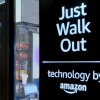If you work in tech, chances are you’ve felt the effects of massive layoffs over the past couple of years. It’s quite possible that the great wave hit your industry, your company, or maybe even yourself. It’s estimated that the tech industry as a whole has suffered 130,000 layoffs. With staggering figures like that, it’s no wonder that employees are seeking alternate routes to a full time salary without committing to just one employer.
Employers have taken back power since the start of the Covid-19 pandemic in early 2020. What started as moving to remote workplaces quickly bloomed into companies staying remote, which has caused many employees to seek out a more flexible work schedule that easily adapts to a desirable work-life balance. A recent survey of 500 individuals revealed that 89% would like more control and flexibility over their schedule, more than traditional full time employers can offer. Folks are looking to spend more time focusing on their families and personal interests and less time tied to a computer, especially when each day is filled with idle time. We’ve seen creative solutions to trick computer monitoring software into thinking you’re actively working, which is telling in itself. It seems unnecessary to sit in front of a screen 8 hours a day if your work can efficiently be completed in 5, but most employers are not willing, or sometimes able, to offer that level of trust and flexibility to their employees.
74% of respondents reported that they find freelance work more attractive than before the sweep of layoffs. 62% said that they feel less secure committing to a single employer and would rather spread their talents across a few outlets. The fear is valid, especially for those who’ve faced job loss and financial hardships in recent years. By extending their talents to multiple employers, employees can better ensure financial security in the event that they’re cut from a job. Similarly, the diversity in work environments may interest those who bore easily or seek to find the best fit for their skill set.
News outlets report thousands of new businesses booming each month. “A record number of LLCs,” they report. What the headlines don’t consider is that anyone can start an LLC. There’s no limit to the number of LLCs a person can have and many of these are either sectors of an existing business or possibly a freelancer opening an LLC to get the ball rolling. Some who have faced layoffs are able to use savings and severance pay to open a multi-employee business venture, but this is not always the case. While new LLCs may be popping up left and right, new job openings may not accompany them.
Only time will tell how long the gig economy rules the tech world, but we expect things in the freelance world to cool down a bit as the market recovers. We’re curious to see if the cooling result will come as a result from employers meeting employees in the middle, or if employees will become frustrated with juggling multiple income streams.
Jennifer is a native Houstonian (go Astros!) with a knack for creating digital works of art. She has expansive experience creating content and branded collateral for Fortune 500 companies, as well as small local businesses. When she’s not buried in her laptop, Jennifer is the marketing director for a world championship circuit barbecue cook off team and pet mom to dog (Milo) and Guinea pig (Piggy Smalls).











































